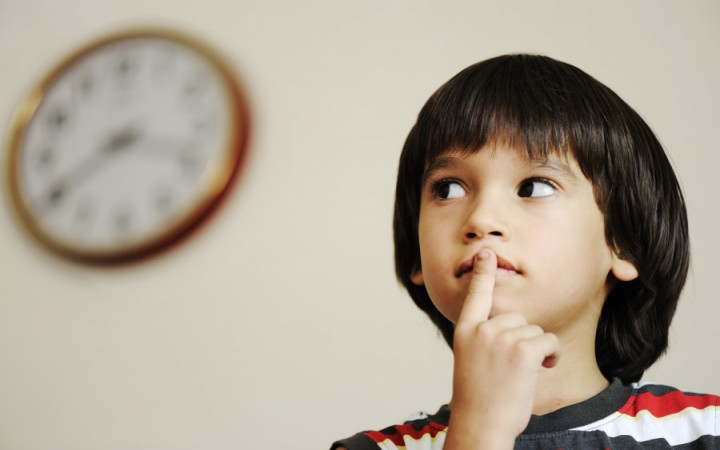If you're like most kids, you probably have a good idea of about what time it is throughout the school day. As you're learning, working on assignments, and going from class to class, you probably glance at the clock on a regular basis.
When you get home and it's time to play, though, how often do you look at the clock? Do you keep an eye on what time it is like you do at school? Are you counting down the minutes until bedtime? Or does someone have to remind you of what time it is when it's time to clean up and hit the hay?
Our guess is that you pay much more attention to the time when you're at school than when you're playing at home. But why is that? Why wouldn't you pay attention to the time in the same way regardless of where you are and what you're doing?
Why does time seem to move faster when you're doing something enjoyable and slower when you're bored? This phenomenon has given rise to a popular saying you've probably heard many times before: time flies when you're having fun. Why does it do that?
Psychologists who have studied this phenomenon have confirmed that people do indeed perceive time differently depending upon their mental state and the activities they're engaged in. If you think about it, it just makes common sense.
When you're bored or doing something you'd rather not be doing, your mind is not occupied and it tends to wander. When it wanders, it often wanders toward the clock, as you think about how much time must pass until you're able to do something you'd rather be doing.
On the other hand, when you're happily engaged in an activity you enjoy, your mind tends to be fully focused on the fun you're having. You don't worry as much about time passing, because you're enjoying the moment while it lasts.
Researchers who have studied time perception have made some interesting findings lately. For example, not all enjoyable time flies by at the same speed. Researchers believe that simply being happy and content will not necessarily make time seem to pass more quickly.
However, if you're engaged in an activity or pursuit that is focused on achieving a goal, then time really does fly by as you're having fun. Researchers believe that the excitement generated by the active pursuit of a goal is what causes us to perceive time passing quickly.
Another interesting finding is that we tend to perceive time differently from memory compared to when events are taking place. For example, if you're on vacation having fun, the days seem to go by so quickly. If you're in school, however, the days might seem to drag by very slowly.
When you think about these things several months later from memory, your perceptions of them are usually reversed. Those boring days that seemed to drag by as you experienced them seem to have occurred quickly when you look back on them. Your vacation, on the other hand, will seem like it lasted much longer than it felt at the time.
Researchers point to how your memory works for an explanation. When you think back about something, you must retrieve events from your memory in order to reconstruct events and attempt to judge the duration of time those events lasted.
On vacation, you made lots of memories and there are many events to recover and remember. These many events make your vacation seem longer in memory than it felt as it was occurring. Conversely, when you look back over a typical week with few specific memories, those few memories make that time seem like it passed much more quickly than it did when those days seemed to inch by as you experienced them.




